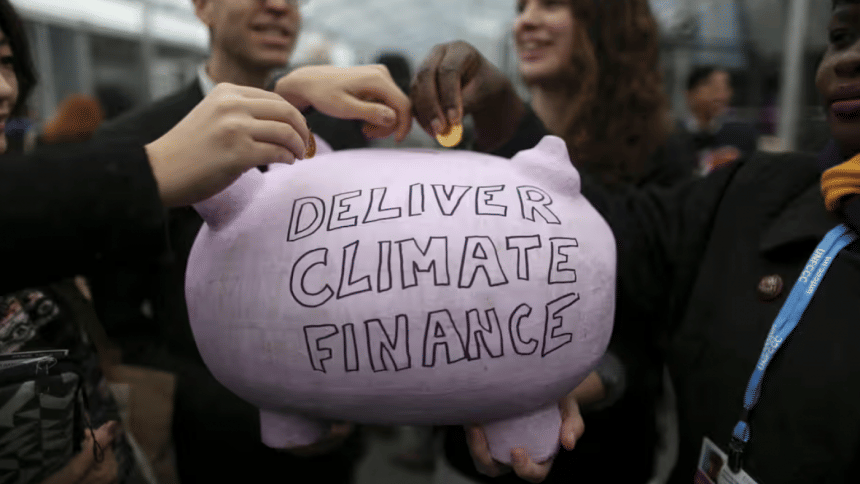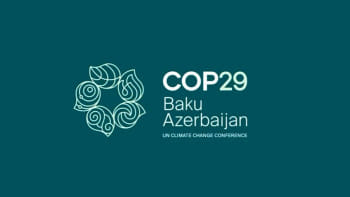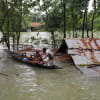COP29: A quick run-through of the finance agenda

Why is COP29 called the Finance COP?
The 29th session of the United Nations Framework Convention on Climate Change (UNFCCC) Conference of the Parties (COP29) will be held at Azerbaijan's capital Baku on November 11-22, 2024. The UNFCCC secretariat and the host country are expecting around 50,000 participants; including government officials, policymakers, practitioners, youth, and investors. The centrepiece of this year's COP agenda is undoubtedly climate finance, with the decision text on New Collective Quantified Goal (NCQG) targeted to be finalised. Recently, the host country announced the launch of a Climate Finance Action Fund (CFAF) among its packages of initiatives at COP29.
So, what is the NCQG?
In 2009 at Copenhagen, the Conference of Parties (COP15) decided to commit to a goal of mobilising $100 billion per year by 2020 to support developing countries in their climate actions. However, the collective commitment of developed countries had failed and the $100 billion goal was extended until 2025, at COP21 in Paris. Meanwhile, under the Paris Agreement, parties agreed to set a new climate finance target by 2025 from the floor of $100 billion considering the needs and priorities of developing countries. This new goal also sends a strong political signal to the parties to be more aware at the negotiation rooms.
What has happened to date?
An ad hoc work programme on the NCQG, facilitated by two co-chairs (one from a developed country and one from a developing country) has been implemented between 2022 and 2024. Meetings and technical expert dialogues conducted under the work programme aimed to finalise the draft negotiating text forming the basis of negotiations for setting NCQG at COP29. The initial structure of the substantive framework for the text proposed by the co-chairs included four elements: i) preamble; ii) context; ii) NCQG (comprised of quantitative elements, thematic scope, and qualitative elements) and; vi) transparency arrangements.
What to look out for in the upcoming 12 days?
COP29 must seal the deal on the NCQG's target and mechanisms. From among the elements of the structure being worked on, let's have a quick look at progress to date and anticipations:
i) Overall, most parties agreed with the structure proposed by the co-chairs. Some elements such as common but differentiated responsibilities (CBDR) that the NCQG must follow were added. Others were asked to be kept as standalone elements rather than sub-elements (such as time frame of the goal, and access to climate finance)
ii)The structure of the goal will need to decide on the following:
- will the goal be sub-layered?
-
which aspects will define the sub-layers?
-
will the three main streams of climate action (adaptation, mitigation, and loss and damage) be used to allocate percentages in sub-goals?
The developing parties definitely have made it loud and clear that this must be the case. But the richer countries are still not on the same page, with "strong resistance" expressed against an explicit loss and damage sub-goal. With a new US president in power, the developing parties will need to ramp up their fight for climate justice many folds.
iii) What will the time frame(s) of the goal look like? The options discussed include alignment with existing UNFCCC processes such as the Nationally Determined Contribution (NDC), Biennial Transparency Reports (BTR) and Global Stocktake (GST) cycles. Would a cumulative or an annual goal be set? How long would it take to achieve the goals with the options varying from five years to 10 or 15 years? Most of the existing UNFCCC processes are five-year cycles. What would the starting year be, 2025 or 2026? In case of a longer time frame, how often would review and/or revision provisions be kept? Periodic reviewing and revisions should be planned so that the Standing Committee on Finance (SCF) biennial progress report and GST reports can inform stakeholders meaningfully. They must also be interlinked and planned with the transparency arrangements of the NCQG.
vi) The floor for the quantum or figure for the next climate finance is in trillions per year. The second report by the SCF published mid-October provides an updated overview of the needs of developing country parties based on available information in reports at the national, regional and global level. Costed needs (the estimated cost needed to address climate change) are a subset of the mentioned needs, thus indicating the monetary numbers in hand are underestimated. As per the report, NDCs from 142 parties contained a total of 5,760 needs, of which 48 percent are costed needs, amounting to $5.036–6.876 trillion. And that only speaks for mitigation. The quantum is thus largely interlinked with the structure and must address all three pillars of adaptation, mitigation, and loss and damage. The quantum will also be determined by the time frame(s) and sources of finance. To ensure quality of finance, many parties also called for sub-targets for concessional and grant-based finance.
Azerbaijan's initiative or stunt?
Back in July, the host country announced a package of 14 initiatives, of which the Climate Finance Action Fund (CFAF) is targeted to kick off with an initial one billion dollars sourced through voluntary contributions from the fossil-fuel-producing countries. Half of the funds will be channelled to developing countries for climate action, while the remaining half will target implementation of ambitious NDC actions and working to limit global temperatures to 1.5°C.
Azerbaijan received significant criticism for holding a large share in fossil fuel production, with their stance on climate change remaining in question. This initiative may be an attempt for redemption, but risks being a bypass for fossil fuel producers when we all must be collectively working to transition away from fossil fuels.
Parties, government officials, and advocates, especially from among the Least Developed Countries (LDCs) and Small Island Developing States (SIDS), have been expressing serious concerns over COP29. Papua New Guinea has already pulled out its participation. Additionally with the recent turnarounds of the US elections, this COP is under immense pressure to deliver and it must deliver, because timely actions are long overdue.
Madiha Chowdhury is senior research officer at the International Centre for Climate Change and Development (ICCCAD). She can be reached at [email protected].
Juel Mahmud is programme coordinator at the International Centre for Climate Change and Development (ICCCAD). He can be reached at [email protected].
Views expressed in this article are the author's own.
Follow The Daily Star Opinion on Facebook for the latest opinions, commentaries and analyses by experts and professionals. To contribute your article or letter to The Daily Star Opinion, see our guidelines for submission.

 For all latest news, follow The Daily Star's Google News channel.
For all latest news, follow The Daily Star's Google News channel. 







Comments